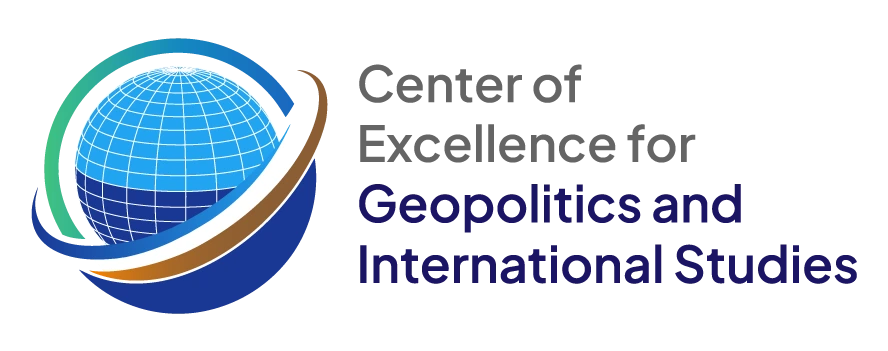The Republic of Balochistan: A Nation in Waiting for Global Recognition
Dr. Devender Kumar
16 May, 2025
The prominent Baloch leader, Mir Yar Baloch, has declared the establishment of a “Democratic Republic of Balochistan” (DRB) on 14 May 2025, stating that the state was “annexed by Pakistan in 1948.” He claimed that “Pakistan occupied Balochistan” and “it is not Pakistan.”
The Baloch Liberation Army (BLA) started “Operation Herof 2.0” against Pakistan and targeted 58 sites in the area via 78 activities, as a symbol of resistance against “Pakistan’s occupation of Balochistan.” The BLA targeted intelligence service personnel, vehicles, and major security posts.
It has also appealed to the United Nations and the international community, including India, to support the formation of DRB and urged them to pressure Islamabad to vacate Balochistan. The Baloch leadership has backed “India’s stand on Pakistan Occupied Jammu and Kashmir (PoJK)” and stated that “Balochistan fully supports India's decision of asking Pakistan to vacate PoK.”
Baloch people believe that “the world can't be a silent spectator anymore” as “Pakistan had been committing genocide and war crimes right under the nose of the UN and the civilized world.” The BLA has requested that Pakistan be held accountable for the war crimes committed in Balochistan.
Strategically, Balochistan has been very important to Pakistan for connectivity, mineral wealth, blue water economy, agriculture, and human capital. The Gwadar port of Balochistan under the “China-Pakistan Economic Corridor” (CPEC) has connected China and Pakistan with West Asia, Central Asia, and other parts of the world. It plays a major part in China’s Belt and Road Initiative (BRI). The Makran coast has made it best suitable for fishing, agriculture, seaborne trade, mining, and provides finances for development.
There are six compelling reasons why the Democratic Republic of Balochistan deserves international recognition.
First, Balochistan was part of the princely state of Kalat, and the ruler was declared ‘independent’ by the British under Article 3 of the treaty of 1876. The British controlled the external and foreign relations of the Khanate of Kalat to secure it from attacks from Central Asia and Afghanistan.
Second, Kalat (modern-day Balochistan) remained free for “227 days” after the independence of India in August 1947. Mohammad Ali Jinnah betrayed “Mir Ahmed Yar Khan, the Khan of Kalat,” the last ruler of the princely state.
Third, the Muslim League had recognized the independence of Kalat as a free country under the standstill agreement on 4 August 1947. Liaquat Ali Khan and Mohammad Ali Jinnah, as representatives of the future Pakistani state, “recognized Kalat as an independent sovereign state.” However, Kalat declared its independence from the British on 11 August 1947 but was forced to accede to Pakistan due to Pakistani coercion. Even though the Khan of Kalat, the ruler of modern day Balochistan, had desired to join India, he was forced to sign the “instrument of accession” by Pakistan on 27 March 1948. The people of Kalat and “Prince Abdul Karim” (brother of Ahmed Yar Khan) opposed this move and began the first Baloch insurgency against Pakistan. However, Islamabad violently repressed this revolt and imprisoned the leaders.
Fourth, for nearly 77 years, the Baloch people have endured state-sponsored killings, disappearances, abductions, and unlawful murders of lawyers, journalists, teachers, and activists under the “kill and dump operations” of Pakistan and its Army. In many cases, the bodies of these victims have been desecrated and tortured. Bullets have been shot in various parts of the body. The intelligence agency and Frontier Corps have arrested Baloch citizens without notice or information, creating a climate of fear among the citizens of Balochistan.
Fifth, Balochistan is a hub for mineral resources that include gold, copper, gas, and seaports. It serves as a major source of income for the Pakistani state, but most profits of the state’s resources go to other provinces, such as Punjab, and other ethnic communities. It has the lowest literacy rate and life expectancy. The education system in Balochistan has suffered because many teachers have been arrested, killed, or left the province due to the actions of Pakistan.
Sixth, Pakistan has committed “air bombing” and “genocide” against the Baloch people, and now the Baloch people have appealed to the world “not to refer to Balochs as Pakistan's people” since the state has been under slavery in the name of economic competition.
The world must support the DRB and its independence, as the people of Balochistan suffer at the hands of Pakistan and its forces, just like the Bengalis of East Pakistan (Bangladesh) did in the late 1960s. The Pakistani Army is committing the same crimes against the “Baloch woman” and abducting them. The independent identity of the Baloch people is being suppressed, and there are huge human rights violations. The Pakistani state has killed thousands of children, elderly people, doctors, and teachers.
Dr. Devender Kumar is Assistant Professor at the Center of Excellence for Geopolitics and International Studies (CEGIS), REVA University.
